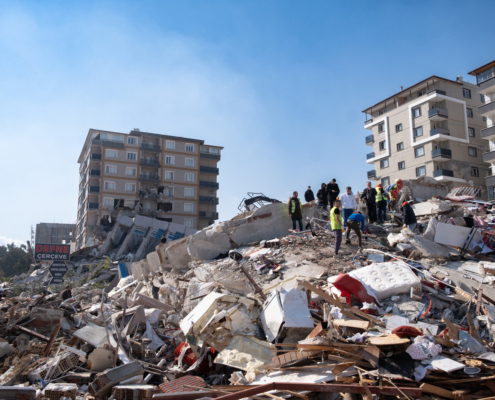
The Heat is On
Explore the key insights and implications from Transparency International’s 2024 Corruption Perceptions Index.

The Green Gold Rush
Explore the corruption risks in the green transition mining and minerals sector, a rapidly growing industry fraught with challenges that expose businesses to bribery, fraud, and reputational damage. Discover strategies to protect your operations and ensure compliance in the race for sustainable energy solutions.

Toward a Financial Integrity Risk Management Program
This article explores the commonalities between AML, sanctions compliance, ABC, fraud risk management, and export control compliance programs and recommends that organizations consider using a holistic financial integrity risk management and compliance framework.

Webinar Recap – The Dos, Don’ts & Expert Insights on Beneficial Ownership
In our recent webinar, regulatory, investigative, and anticorruption policy experts discussed some of the nuances relating to the U.S. Corporate Transparency Act (CTA) and its Beneficial Ownership reporting requirement. Explore the highlights in this article.

A PEP Talk
Politically exposed persons are individuals who, due to their positions of power, influence, or proximity to government, are susceptible to becoming involved in corruption, bribery, or other financial crimes. And because moving and hiding misappropriated assets often involves money laundering, financial institutions across the globe are tasked with the challenge of identifying and managing these risks.

Beneficial Ownership: Who Owns What?
U.S. efforts to curb illicit finance are in full swing, as the requirement to reveal the beneficial owners of certain entities registered or operating in the United States came into effect this year. In this article, we explore key requirements, benefits, and deadlines as well as address some of the concerns organizations may have about the new regulation.

Understanding and Addressing Fraud and Corruption Risks
In our recent webinar, industry experts delved into the crucial topic of fraud and corruption risks. From seasoned professionals to anti-corruption activists, the webinar featured a panel of distinguished speakers: Steve Burgess, Nikki Kenyon, Chris Williams, and James Wasserstrom. This blog post aims to summarize the key points discussed during the session, equipping readers with the knowledge necessary to navigate these risks effectively.

Corruption in Construction
Corruption in the construction sector can include everything from fraud, to extortion, embezzlement, and other abuses. Corruption doesn’t just undermine good governance; it endangers lives and threatens the reputation of any financial institution involved in construction projects that are rife with fraud and abuse. How can government organizations and financial institutions mitigate corruption risks when funding or supporting infrastructure projects? How can they detect suspicious transactions?

Corruption Kills
Construction projects are especially vulnerable to corruption because of their complexity, high price tags, and the number of intermediaries and other parties involved. Corruption in the construction sector does not merely result in financial losses, environmental destruction, and inequality, but it can also result in loss of life.

Tech vs. Corruption
As corruption continues to pose significant challenges across various sectors, including government agencies, traditional banking institutions, and designated non-financial businesses and professionals (DNFBPs), innovative technological solutions are proving to be essential in combating these issues. This article highlights how blockchain, AI, and data analytics are revolutionizing the fight against corruption.
